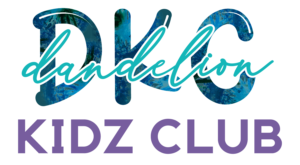Beyond Social Skills: Gaining Perspective on Our Thoughts, Feelings and Worries (Ages 9-12)
For kids who are learning to navigate friendships.

Your child knows they need support, but they’re convinced so many things are wrong with them. They are anxious about school, friends, making decisions, and pretty much anything and everything. All this anxiety keeps them from enjoying just being a kid.
You’ve realized your child is a bit of a pessimist. It’s all gloom and doom the moment they don’t get their way. It’s honestly a bit miserable to be around them. They are always comparing themselves to others, saying they aren’t good enough or that they’re a failure. They put so much pressure on themselves to just fit in!
You’ve noticed your child is fixated on what others think, the latest Tik Tok trends, what’s in fashion, and are they fitting in. They talk as if they have friends, but where are the invites? You question if they actually have the friendships they claim they do, or is this something they are anxious about as well..
Ultimately, all this worrying is stressing you out. It makes them moody, sarcastic and rude, and you’re miserable dealing with it all. Yet, there is a glimmer of hope. Your child wants to change, or is open to not feeling so anxious all the time. Your child doesn’t need a social skills group, instead they need a group to be social in. One that works on reducing anxiety, improving self confidence and self esteem. A group that also gives your child a social outlet to realize they aren’t the only one over thinking things, and they’re not as alone as they might feel at times.
➤ Our Beyond Social Skills group for kids ages 9-12 will help your child master these skills like…
For your hyperactive ADHD child
- Being more aware of the impact of their behaviors and words on others
- Increasing ability to slow their body and mind down when appropriate
- Noticing thoughts and feeling more in control
For your inattentive ADHD child
- Being more aware of their needs and knowing how to speak up
- Gaining mastery of thoughts and feeling more in control
- Noticing and being more in tune with themselves and others
For your Autistic child
- Increasing flexible thinking skills
- Learning and using practical concrete skills to manage their emotions and interactions with peers
- Effectively communicating their own needs
For your Anxious child
- Decreasing avoidance of feared and anxiety-provoking situations
- Becoming more aware of body cues and reactions to stress and anxiety
- Focusing on strengths and positive aspects of life
➤ Our Beyond Social Skills group for ages 9-12 yrs also helps kids...
- Listen more
- Be less reactive towards peers
- Speak up and be assertive
- Ask appropriate questions
- Improve self awareness of emotions and how those emotions are impacted by others
- Increase tolerance of frustrating situations
- Decrease anxious thoughts about social situations and peers
- Decrease anxious over-thinking thoughts
- Decrease pessimist thinking
- Create a unique voice that is focused on moving forward
- Be less shy or socially ‘awkward’
- Find a community of like minded kids that also struggle with anxiety
- Increase sense of self and awareness of others
- Improve self confidence and self talk
- Smile and laugh more
➤ Our Beyond Social Skills group for kids ages 9-12 will help parents...
- Worry less about your child’s ability to handle stress and anxiety
- Feel more confident in seeing your child make friends and be more relaxed in social groups
- Notice improvement in your child’s confidence and self talk
- Understand the skills and concepts necessary for growth and social-emotional skills
Understanding the structure & techniques of our Beyond Social Skills group.
- Unstructured in the beginning to help destress from outside life/world to prepare brain and body to work/learn, socialize and improve rapport between group members, and practice applying skills in a group setting during unstructured time (initiate play, join play, decrease anxiety, social skills, relationships)
- Check in to process the week and continue getting close to group members as each member shares (often similar stressors/excitements and results in the children bonding further)
- Structured to provide psychoeducation on topic, activity to practice, and further explore topic/concept and discussion as group
- Weekly follow up emails include a summary of skills so parents are included and help reinforce tools and further discussion/practice outside of the group which promotes consistency and further progress/generalization of growth and skill-use. Similarly to how group members need to repeat group sections to fully receive the benefits; outside of group practice and use of skills is a requirement for practice – once weekly exposure to skills isn’t anywhere near enough for any major change/progress
- A structured goal-oriented theoretical approach that brings awareness to the connection between thoughts, feelings and behaviors
- Promotes thought awareness and understanding
- It helps group members to recognize and change, challenge and/or reframe negative, unhelpful, unrealistic and/or distorted thinking patterns that can lead to negative emotions and behaviors. Mood and feelings change/improve as a result
- Promotes more positive behavior through coping strategies and problem-solving techniques
- Teaches practical skills like relaxation, emotional regulation and positive self-talk that can be used and applied in everyday life.
- Boosts self-esteem and resilience as group members gain more control over thoughts and feelings and start managing their stress, anxiety and frustration
- Evidence-based and proven to be effective in treating anxiety, depression, and behavioral issues
- Structured theoretical approach that combines cognitive-behavioral techniques (from CBT) with mindfulness practices to help kids manage intense emotions and improve relationships
- Emphasis on balancing acceptance (accepting emotions and reality) and change (learning new behaviors) – dialects can co-exist and be true at the same time, therefore, results in more cognitive flexibility and decrease in rigid black and white thinking/extremes
- Teaches group members how to recognize, understand and manage emotions effectively while increasing distress tolerance
- Encourages staying present in the moment, improving focus and reducing impulsive reactions
- Promotes skills to build healthy relationships, asserting needs and handling conflicts
- Teaches practical skills to self-sooth, relax and provide a positive distraction while reducing emotional reactivity
- Evidence-based and developed to treat individuals with emotional dysregulation and intense emotions
- Practice of being fully present and engaged in the current moment by paying attention to thoughts, feelings and physical sensations without judgment
- It helps group members become more aware and observe their emotions and inner experience rather than being overwhelmed by them – fosters emotional balance
- Promotes emotional awareness, improved focus, reduced stress and strengthened self-regulation skills
- Increases resilience by teaching kids how to tolerate discomfort and cope with challenges in a healthy way
- Beat the Odds® is a therapeutic program that uses group drumming as a tool for emotional skills building delivered in a framework of drumming
- Integrates activities from group drumming and group counseling to build core social emotional skills (such as focus and listening, team building, positive risk taking, self-esteem, awareness of others, leadership, expressing feelings, managing anger/stress, empathy and gratitude) through the power of rhythm and music
- Research has shown the program can significantly reduce a spectrum of behavior problems in children relating to inattention, withdrawn/depression, posttraumatic stress, anxiety, ADHD, oppositional defiance and sluggish cognitive tempo.
- No musical experience is needed – it emphasizes process and not performance. Program includes therapeutic dimension involving positive affirmations, emotional coping strategies, and guided interaction with rhythmic activities serving as a metaphor for life
- Drumming offers a non-verbal means of self-expression and engagement and offers an external pathway for mindfulness, while creating a structure for group members to feel empowered and engaged while working on skills.
➤ Our Beyond Social Skills group is the most effective way to take your child from feeling anxious and insecure to being confident and excited to go to school.
Here’s why…
- We use a therapist designed curriculum that specifically targets anxious beliefs that prevent your child from being their best confident self.
- We teach building friendships through playing, while also using cognitive-behavioral techniques to reduce social anxiety, improve assertiveness and decrease the negative self talk that controls their day.
- We know that kids don’t learn from worksheets. We use a combination of unstructured and structured activities to help kids learn skills in a real setting, which transfers to home and school.
- This group utilizes curriculum that is inspired by evidence-based practices from CBT, DBT, Mindfulness and Drumming Circle.
- We provide weekly updates on the group’s curriculum to keep you involved and help your child utilize these skills outside of group sessions.
- We know kids need to feel like they fit in and are part of a group. We facilitate group sessions that foster understanding, empathy, and working as a team. This improves kids’ sense of belonging and creates a safe space to be their true self.
➤ This group may be the best fit for your child if they are:
- Ages 9-12
- Creative or artsy
- Ready and aware of how their anxiety impacts them socially
- Motivated and ready to talk about their feelings and challenges
- Wanting to find their ‘place’ and be part of a group with shared experiences
- Able to sit and focus
➤ This group may not be the best fit for your child if:
- Their impulsivity (or wiggles) may impact their ability to sit still and concentrate
- They are not yet ready for action steps related to their anxiety
- They struggle significantly with social interactions
- They would benefit from working on their social skills
- Their negative self talk is attention seeking in nature
Club Creative: Creative Arts Inspired Social Connections Group for Girls

I'm Mirela
I help kids ages 9-12 tackle the thoughts and feelings that get in the way of good self esteem and social confidence.
➤ The Specifics:
- The group investment is $110 weekly, paid in monthly blocks.
- The group is 55 minutes per week and is led by Mirela Frank, LCMHC, RPT.
- We provide weekly updates on goals.
